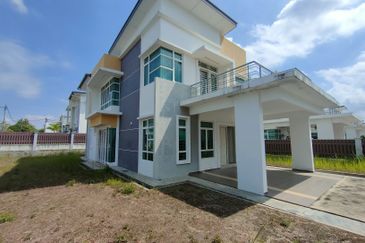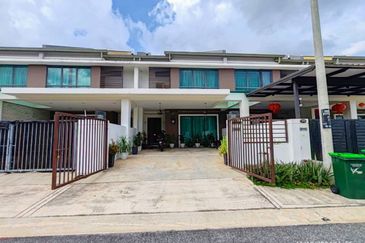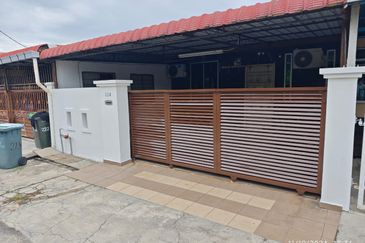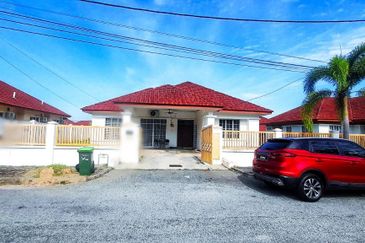
KUALA LUMPUR (Sept 14): Urban Wellbeing, Housing and Local Government Minister Tan Sri Noh Omar will brief the cabinet today on the controversial developer lending scheme, after the ministry’s initiative was met with strong resistance and censure — even from within the cabinet itself.
A source said the scheme’s fate will be known pending the minister’s explanation. Under the scheme, homebuilders are allowed to apply for a moneylending licence so that they can provide end-financing to buyers who face hardship in sourcing funds for down payment.
“On the ministry’s side, it is working on the mechanics for the developer lending scheme. The urban wellbeing, housing, and local government ministry already has the Moneylenders Act 1951 and Pawnbrokers Act 1972, but it needs to look into how best, for the developers, to utilise the lending scheme for the purpose of end-financing home purchases.
“Whatever it is, since the deputy prime minister (Datuk Seri Dr Ahmad Zahid Hamidi) has already come out to ask the ministry to brief this matter to the cabinet, it will do so — and the ministry will announce anything material if something arises from the cabinet meeting [today],” said the source.
Noh yesterday said he would abide by the cabinet’s decision but insisted that the scheme is not new, noting that several housing developers already hold the licence.
"If the cabinet also decides that the licence given to those developers should not be continued, then the licence will be revoked,” Bernama quoted him as saying.
Over the weekend, Ahmad Zahid clarified to reporters that the cabinet was left in the dark by the ministry’s plan to issue moneylending licences to property developers. As such, he said, the cabinet had asked Noh to clarify the matter.
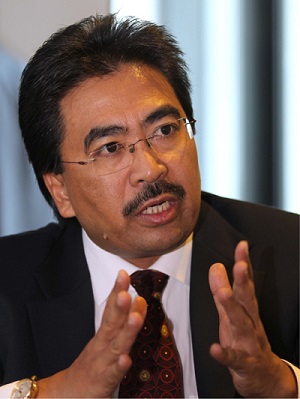 Finance Minister II Datuk Seri Johari Abdul Ghani (pictured), meanwhile, stamped his disapproval on the developer lending scheme almost immediately after it was announced last Thursday.
Finance Minister II Datuk Seri Johari Abdul Ghani (pictured), meanwhile, stamped his disapproval on the developer lending scheme almost immediately after it was announced last Thursday.
Saying the idea “doesn't sound logical”, he pointed out that buyers who were already unable to obtain mortgages from banks — where the interest rates are in single digits — would not be able to pay the developer-lending scheme’s ceiling interest rates of between 12% and 18%.
Johari said on the homebuilders’ side, the thought of them doubling as moneylenders sounds like “a very unsustainable business model for the developers to borrow money to complete the project, and at the same to give loans to house buyers.”
RAM Rating Services Bhd flagged a similar warning yesterday. Property developers had geared up in the past two years to fund land acquisition and working-capital needs, where many a key local player consequently has gearing ratios of more than 0.7 times and/or debt-to-revenue ratios of above one time, it said in a statement.
“Accordingly, not many developers have the capacity to provide mortgage financing on a large scale,” said RAM. “Only developers with strong balance sheets will, in our view, contemplate this option to spur sales.”
Obviously, as the debt rating agency pointed out, homebuilders’ credit risk level will rise should they take this route. People who opt for full or partial loans from homebuilders will be those who are unable to obtain the required loan amount through the traditional mortgage financing from banks, and ergo, will naturally carry a higher credit risk, said RAM.
“Further[more], the cost of establishing a moneylending business, id est manpower, and evaluation or risk management systems, will add to operating costs,” said the agency.
Already, various incentives and promotions offered by developers since early this year — namely deferred-payment arrangements, minimal down-payment offers, and build-then-sell home ownership schemes — are likely to crimp their profit margins and increase working capital requirements, RAM opined.
The developers’ debt level, too, could rise from making this sort of incentives available.
“Offering loans to house buyers who cannot meet the eligibility requirements of banks will, consequently, present further risks to developers in the event of non-payment by the buyer, especially in the absence of collateral,” RAM said.
The Penang government has emphatically banned property developers from offering lending to buyers for their projects in the state. Chief Minister Lim Guan Eng said in a statement yesterday that the scheme “is no different from the sub-prime lending in the US 10 years ago, which led to the 2007 to 2009 financial crisis.”
“Property developers can only lend money to [homebuyers] at up to 18% annual interest because they borrow money at commercial rates from banks. How many developers can afford to build their own housing projects from internally generated funds without borrowing from banks?” Guan Eng questioned.
Thus, he said the Penang government will direct the state’s two local councils, Majlis Bandaraya Pulau Pinang and Majlis Perbandaran Seberang Perai, not to approve any development projects of property developers that become moneylenders.
The National House Buyers Association (HBA) honarary secretary-general Chang Kim Loong, meanwhile, questioned Noh on whether the ministry had consulted with the central bank before announcing the developer financing scheme, given its role as the regulator of this country’s financial sector.
“Bank Negara Malaysia (BNM) has played a pivotal and important role in ensuring a sustainable financial sector. Banks are strictly regulated and have to comply with various regulations ranging from the Financial Services Act and also other laws such as the Anti-Money Laundering Act, etc.
“HBA would like to ask the honourable minister if he has consulted with BNM prior to announcing this proposal and whether BNM has given its blessing as the failure of such a scheme can have wide ramifications for the economy and country at large,” Chang said in a statement.
He urged developers to clarify whether the interest rates are based on “reducing balance” or fixed rate — where the latter is permitted under the Moneylenders Act. The latter loan interest payment is fixed upfront and does not reduce as the principal is being repaid over the tenure of the loan, Chang explained.
“Hence, such fixed rate loans quoted at, say, 12% for a tenure of 20 years, the effective interest rate is actually much higher at 16.34%.
“Instead of assisting house buyers get a ‘soft loan’, it seems that house buyers are dragged into deeper debts unwittingly. Such a ‘scheme’ will only bring more harm than good,” said Chang.
This article first appeared in The Edge Financial Daily, on Sept 14, 2016. Subscribe to The Edge Financial Daily here.
TOP PICKS BY EDGEPROP

Kawasan Perindustrian Olak Lempit
Banting, Selangor
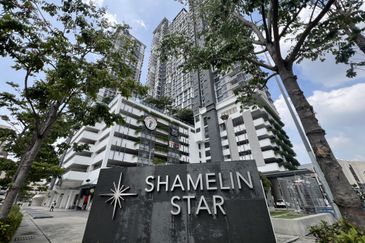
Shamelin Star Serviced Residences
Cheras, Kuala Lumpur


